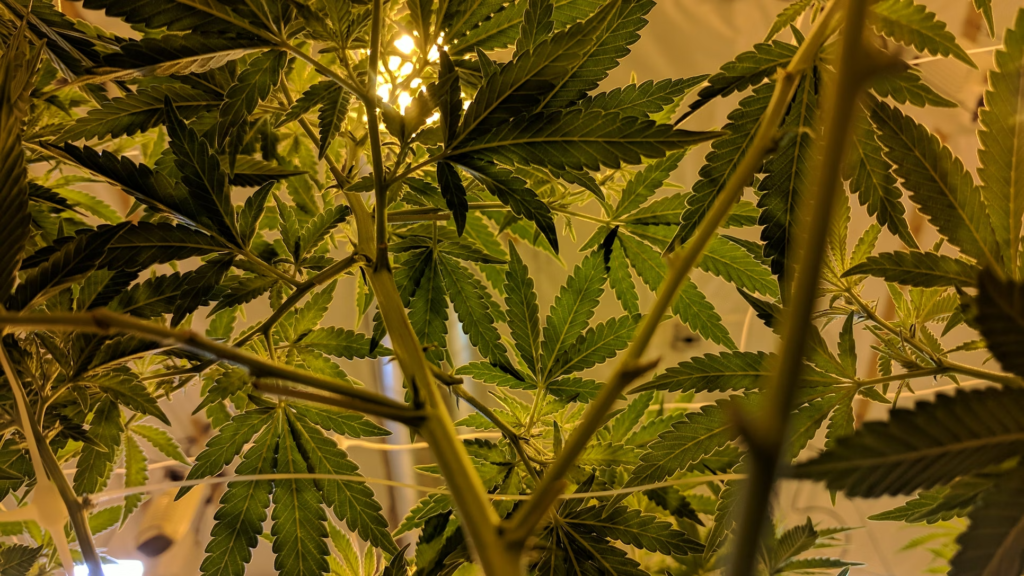Choosing the Best Method for Growing Cannabis: Seeds vs. Clones
When embarking on cannabis cultivation, you are faced with a choice between two paths: seeds or clones. On one hand, seeds offer reliability, ease of use, and wide availability. On the other hand, clones provide speed, efficiency, and inherit the precise traits of the mother plant. However, it is important to note that both methods come with their respective drawbacks. Let’s delve into a comparison of seeds and clones, enabling you to make an informed decision for your cultivation endeavors.
Cultivators of cannabis have two primary options to initiate their growth process. They can opt to germinate seeds or acquire cuttings from a well-established mother plant. Although both approaches ultimately yield cannabinoid-rich buds, they follow distinct paths to achieve the desired outcome.
There are growers who favor the quickness of clones, while others find satisfaction in starting from seeds and seeing the entire process through. Whether you’re new to growing or an experienced veteran, it’s crucial to familiarize yourself with both methods to allow for future experimentation and optimize outcomes.
Both seeds and clones possess distinct advantages and disadvantages. By carefully considering the characteristics of each, you can make an informed decision about the direction you wish to pursue.
Benefits of Cultivating Cannabis from Seeds
For many cultivators, beginning the growth process with seeds is often seen as the most authentic approach. Whether or not this notion holds true, it undeniably brings about a profound sense of fulfillment when harvest time arrives.
A significant number of home growers worldwide opt to commence their projects using seeds. This preference is primarily driven by their widespread availability and legality in most countries. However, their advantages extend beyond legality. In the following discussion, we will explore some compelling reasons why starting your cannabis cultivation journey from seeds is highly advantageous.

Conveniently Accessible: Easily Obtainable
The advent of the internet has significantly streamlined various processes, including the acquisition of cannabis seeds.
In the present day, ordering seeds online has become remarkably effortless, with numerous reputable seed banks, such as Royal Queen Seeds, offering a wide selection. These established seed banks ensure discreet packaging and convenient delivery right to your mailbox, eliminating the need to step out of your home.
Even in countries where cannabis cultivation is prohibited, the acquisition, possession, and collection of non-germinated cannabis seeds are frequently considered legal. By commencing your journey with seeds, you can ensure compliance with the law until the moment you decide to sow them in soil.
Embarking on a Journey from the Ground Up
Beyond the potential for a more gratifying final outcome, seeds provide growers with the opportunity to commence their cultivation endeavors with a brand new genetic foundation. Enclosed within these compact bundles of DNA lies a code untainted by unfavorable growing conditions or potential diseases. However, as we will delve into later, the same cannot be guaranteed for all clones.
Unleash Your Creativity: Crafting Your Unique Cannabis Strains
Once you have attained mastery in the art of growing cannabis from seeds, you open the gateway to creating your very own strains. By crossbreeding your preferred female plant with a cherished male counterpart, the conclusion of the growing season will yield an abundant supply of your custom seeds, potentially numbering in the hundreds or even thousands.
In essence, you are not merely “creating a seed,” but rather crafting a distinct and exclusive strain of your own. Focus on refining traits that provide the most enjoyable smoking experience, allowing you to curate a truly unique and gratifying cannabis journey.
Unleashing the Potential of Feminized Seeds: Cultivating Exceptional Cannabis Buds
While regular cannabis seeds can develop into plants of both sexes, opting for high-quality feminized seeds provides an exceptional 99% likelihood of yielding female plants.
Why is this distinction significant? Well, as you’re aware, female cannabis plants are responsible for producing the resinous and cannabinoid-rich buds that most growers desire. On the other hand, male plants generate pollen sacs, crucial for breeding purposes but detrimental to the yield of female plants they pollinate.
By choosing feminized seeds, you can save substantial time and effort that would typically be spent on identifying and removing male plants. Consequently, you’ll be rewarded with an abundant harvest of top-quality buds, maximizing your cultivation efforts.
Drawbacks of Cultivating Cannabis from Seeds
Upon considering the aforementioned information, initiating the cultivation process with seeds may appear flawless. However, it is important to recognize that every aspect of life carries its drawbacks. With that perspective in mind, let us now shift our focus to the aspects that are not particularly advantageous when using seeds.
Inconsistent Germination Rates: The Unpredictability of Seed Germination
While esteemed seed banks provide improved germination rates, it is important to acknowledge that not every individual seed will successfully sprout. Regrettably, despite your best efforts, certain seeds may turn out to be non-viable. Hence, we recommend initiating your cultivation with multiple seeds, even if your intention is to nurture only one plant. This approach accounts for the possibility of encountering unproductive seeds and ensures a higher likelihood of achieving a successful and thriving crop.
Genotype Versus Phenotype: Understanding the Distinction
Each seed derived from the same parent plant possesses a distinct genotype, representing a unique genetic code. Genetic variation is inevitable, leading to differences between offspring and even among siblings.
Consequently, seeds do not yield exact replicas of their parent plants, and you can expect variations in characteristics among the plants you cultivate. When planting a batch of identical seeds, you will observe differences in height, color, flavor, and yield.
Additionally, cannabis plants exhibit specific traits influenced by their external environment, shaping their phenotype. Factors such as temperature, humidity, light, nutrients, and water play a role in determining the phenotypic expression of the plants. As a result, achieving a uniform crop is more challenging compared to cultivating clones, which maintain genetic consistency.
Delayed Onset: A Slower Initiation
In comparison to clones, seeds require a longer duration to reach the harvest stage. From the moment of sowing, it may take several days up to a week to witness the initial signs of germination. Following this stage, an additional week or two is typically necessary for the plant to develop into a mature seedling.
Although the timeline may not appear excessively lengthy, it is worth noting the popularity of rapid autoflowering strains. These strains have gained favor due to their ability to achieve a seed-to-harvest cycle similar to that of growing from clones, making them a preferred choice for growers seeking quicker results.
Benefits of Cultivating Cannabis Through Cloning
For those unfamiliar with the process, cloning involves taking cuttings from vegetating mother plants. These cuttings are then rooted before being introduced into soil or a hydroponic medium.
True to its name, cloning offers an identical genetic replica of the mother plant. This characteristic can bring both advantages and disadvantages, as we will discuss below. First, let’s delve into the advantages.
Due to the exact replication of genetics, clones derived from female mother plants will also yield female plants. This eliminates the need to watch out for male plants when growing from regular seeds and mitigates the minor risk associated with feminized seeds potentially producing male plants.
Time-Saving Efficiency of Cloning
By opting for clones, there is no need to wait for a seed to germinate and develop into a viable seedling. In fact, this entire stage can be bypassed entirely. With the simple act of rooting a cutting, you are immediately equipped with a plant that is primed for growth.
Assured Expectations: A Clear Understanding of the Outcome
Clones offer a precise replication of the characteristics that you admired in the mother plant. As genetic duplicates, they inherit all the traits encompassing size, taste, morphology, and productivity from their progenitor. Conversely, seeds may exhibit slight variations from their parent plants due to genetic and environmental influences.
Drawbacks of Cultivating Cannabis Through Cloning
While clones excel in various aspects, they are not without their flaws. If you opt to cultivate from clones, you may encounter the following challenges.
Best of Luck Locating Them
Looking for seeds? Look no further than an online seed bank. However, if you’re in search of clones, the task becomes more challenging. As clones are derived from actively growing plants, they are scarce for home growers. Furthermore, their possession is often illegal, even before they reach your hands, making shipping a risky proposition.
Visiting your fellow growers is likely the most viable option for obtaining clones in many countries. Approach them politely, and you may have the opportunity to return home with a couple of cuttings.
Exercise Caution and Vigilance
Seeds possess remarkable resilience, as they can be directly planted into the soil. On the contrary, clones are quite delicate and require careful handling. If cuttings are handled too roughly or not provided with a proper initial care, they may perish even before developing roots.
Moreover, these fragile cuttings necessitate a precisely controlled environment with customized parameters to ensure their optimal growth. Maintaining appropriate humidity levels and consistently fine-tuned temperatures is crucial. Therefore, if you plan to grow from both seeds and clones, it becomes essential to allocate additional space in your grow room to accommodate their distinct requirements.
Inheriting Undesirable Traits Comes with the Territory
Clones inherit all traits, both good and bad, from their mother plants. This means that any negative characteristics or genetic issues present in the mother plant can be passed on to the clones. While you may not be aware of any underlying faults initially, these issues may become apparent as you raise multiple clones, potentially causing significant harm in the process.
Clones vs. Seeds: Determining the Optimal Approach for Cannabis Cultivation
Truly, the answer to this question is highly subjective, as it hinges on individual preferences and the expertise of the grower. Beginners are likely to experience greater ease and superior outcomes by using seeds, whereas clones are a more intricate option better suited for slightly more experienced growers. Nevertheless, even seasoned growers may opt for seeds, whether for breeding purposes or to oversee the entire growth process.
In the realm of cultivation, conducting experiments allows you to discover your own unique approach. Trying both methods will enable you to determine what works best for your specific growing style. Wishing you the best of luck on your journey!







